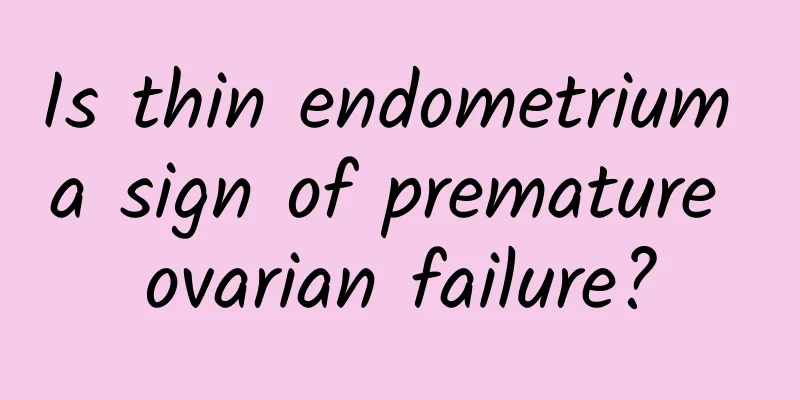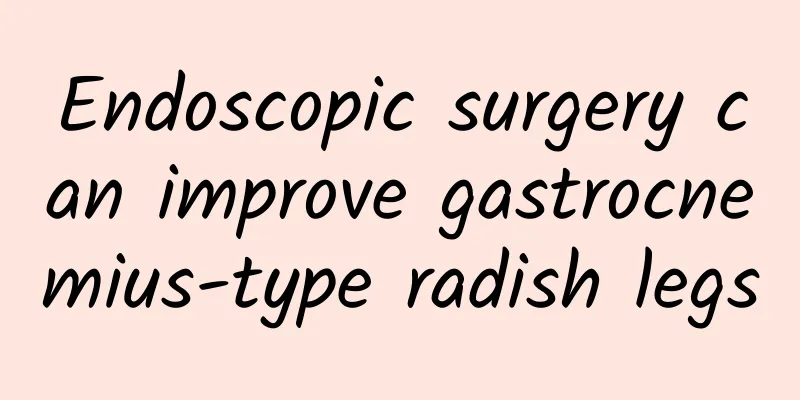Is thin endometrium a sign of premature ovarian failure?

|
Thin endometrium is not equivalent to premature ovarian failure, but it may be related to it. Thin endometrium is usually affected by hormone levels, while premature ovarian failure is a complex reproductive problem caused by abnormal ovarian function. The relationship between the two needs to be further examined and determined. Improving thin endometrium includes drug treatment, lifestyle intervention and traditional Chinese medicine conditioning. 1 What are the possible causes of thin endometrium? Thin endometrium is often associated with insufficient estrogen secretion, which is usually caused by poor ovarian function, imbalanced hormone levels, or long-term use of contraceptives. Repeated damage to the endometrium, such as multiple abortions and curettage, may cause a decrease in the endometrial repair ability. External environmental factors such as excessive stress and unhealthy diet may also have a negative impact on the condition of the endometrium. 2 Physiological manifestations and causes of premature ovarian failure Premature ovarian failure refers to the decline of ovarian function in women before the age of 40, which leads to endocrine disorders, which may manifest as menstrual disorders, hot flashes, night sweats, infertility, etc. Its cause can be attributed to genetic factors such as chromosomal abnormalities, immune abnormalities such as autoimmune diseases, ovarian trauma or surgical injuries, etc. 3 How to diagnose and treat the relationship between the two Thin endometrium does not necessarily mean premature ovarian failure, but if women also have symptoms such as amenorrhea and infertility, it is recommended to be diagnosed under the guidance of a professional doctor. Hormone level tests such as estrogen and follicle-stimulating hormone levels, and B-ultrasound assessment of ovarian size and follicle status can assist in the judgment. If it is premature ovarian failure, supplemental hormone therapy such as estrogen and progesterone may be needed to improve endometrial thickness and relieve symptoms. 4How to improve thin endometrium 1Drug treatment: Your doctor may recommend estrogen drugs such as Progynova or follicle-stimulating agents to regulate hormone levels. 2 Lifestyle intervention: Moderate intake of foods rich in vitamin E and folic acid such as nuts and spinach and maintaining a regular schedule are beneficial to uterine health. 3. Traditional Chinese medicine conditioning: Traditional Chinese medicine such as mugwort or angelica can improve the condition of the endometrium by promoting blood circulation and improving the uterine microenvironment, but it must be used under the advice of a doctor. Thin endometrium and premature ovarian failure may occur independently or be related. The specific diagnosis needs to be made by a professional doctor. If you find related symptoms, do not blindly treat them yourself. Seeking medical attention in time is the best choice to protect your health. |
<<: What to do if your uterus is prolapsed
>>: Can I eat longan meat if I have uterine fibroids?
Recommend
Why do I have stomach pain after an abortion? There are 4 reasons
Women who have abdominal pain after abortion must...
What are the symptoms of pelvic inflammatory disease?
As the number of patients with pelvic inflammator...
Life-saving foods to prevent colorectal cancer! Cabbage and garlic can fight cancer
Variety show king Zhu Geliang was recently admitt...
Move to the rhythm! "Flow Yoga" is now the most popular
"Shake~shake~shake!!! My legs are shaking so...
What are the main causes of cervical erosion?
Among gynecological diseases, cervical erosion is...
What medicines are usually taken to treat pelvic peritonitis
Pelvic peritonitis often occurs in our lives. It ...
Why do you feel cold during menstruation? It is mostly caused by iron deficiency.
Women usually have various problems during menstr...
We need to understand the symptoms of irregular menstruation in advance
The occurrence of irregular menstruation brings a...
How to relieve dysmenorrhea pain?
The problem of dysmenorrhea can be serious or min...
What is the cause of ovarian cyst rupture and what are the symptoms
What happens when an ovarian cyst ruptures? What ...
What are the characteristics and symptoms of miscarriage?
The menstruation is late, the mood is depressed, ...
One piece of black and white blood-replenishing glutinous rice balls has only 50 calories
The winter solstice, the time for eating glutinou...
Analysis of the physical therapy of cervical hypertrophy
In recent years, more and more female friends hav...
What medicine should I take to treat uterine fibroids? What medicine is effective for uterine fibroids?
What medicine should be taken to treat uterine fi...
What are the adverse consequences of premature ovarian failure?
What are the adverse consequences of premature ov...









